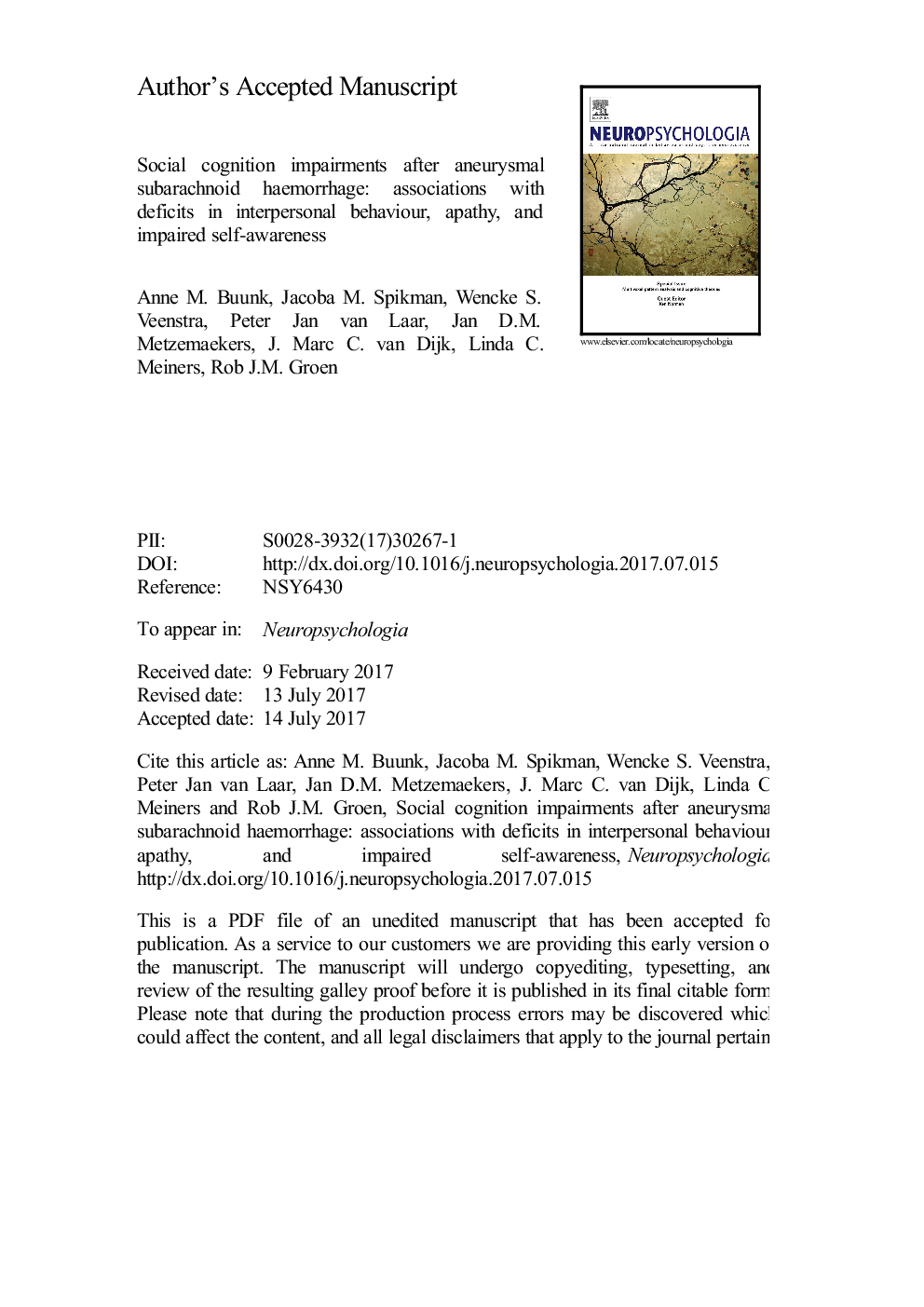ترجمه فارسی عنوان مقاله
اختلالات شناخت اجتماعی پس از خونریزی سوبارارونوئید آنوریسمی: انجمن با نقص در رفتار فردی، بی حوصله و اختلال در خودآگاهی
عنوان انگلیسی
Social cognition impairments after aneurysmal subarachnoid haemorrhage: Associations with deficits in interpersonal behaviour, apathy, and impaired self-awareness
| کد مقاله | سال انتشار | تعداد صفحات مقاله انگلیسی |
|---|---|---|
| 127188 | 2017 | 45 صفحه PDF |
منبع

Publisher : Elsevier - Science Direct (الزویر - ساینس دایرکت)
Journal : Neuropsychologia, Volume 103, August 2017, Pages 131-139
ترجمه کلمات کلیدی
شناخت اجتماعی، خونریزی زیرراخنوودی، بی تفاوتی، خودآگاهی، تصویربرداری رزونانس مغناطیسی،
کلمات کلیدی انگلیسی
Social cognition; Subarachnoid haemorrhage; Apathy; Self-awareness; Magnetic resonance imaging;

